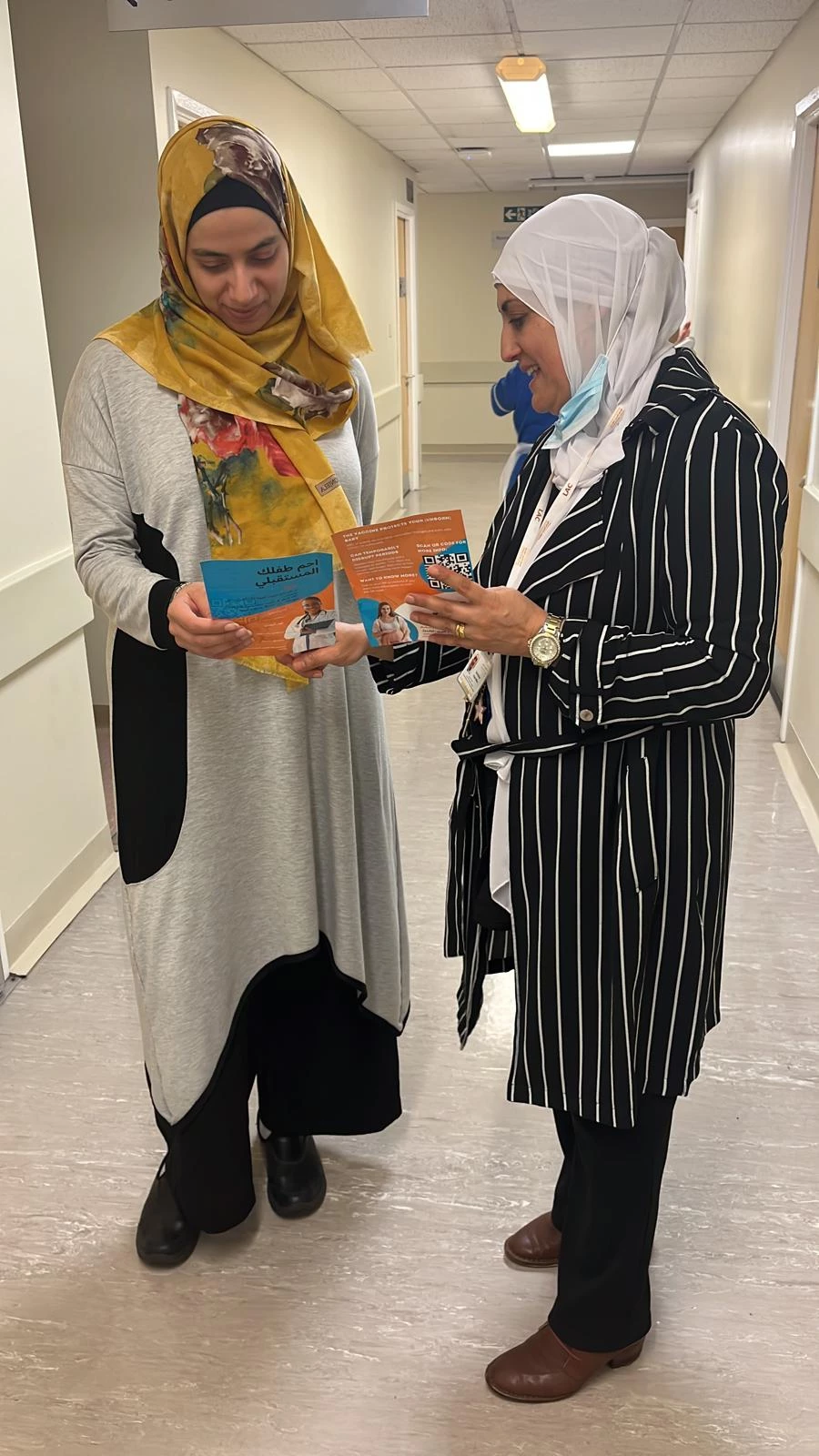
Partner Article
Liverpool vaccine equity programme launches new phase
An innovative community-led programme designed to halve COVID-19 vaccine inequity levels in Liverpool has begun a new phase, which will help community-based groups tackle avoidable and unfair differences in health in the most disadvantaged areas of the city.
The Liverpool Vaccine Equity pilot project, funded by Liverpool City Council was designed to develop local solutions based on local data, to overcome barriers to vaccine uptake. The pilot project leverages global health learnings and is driven by teams based within local communities.
At the heart of this approach is the formation and development of Community Innovation Teams (CITs), which consist of community champions, volunteers, primary care providers, public health practitioners and other key stakeholders. These community teams use local data to overcome barriers to vaccination.
The programme published a report detailing its activity and achievements during the project’s first phase. This included establishing the CITs, conducting a survey to understand why people chose to get vaccinated or not and establishing effective messages and communication channels to boost COVID-19 vaccination rates.
Between December 2021 and July 2022, targeted community interventions included a range of engagement and outreach events as well as a pop-up photo exhibition entitled “I did it for…” and a social media campaign based around positive good news video stories from vaccinated men and women, filmed in inner city Liverpool. These community assets have also been used as part of a wider NHS North NW social media campaign.
Thanks to this, there was a 12% increase in uptake of the vaccine in unvaccinated white men under the age of 50 in Vauxhall, Marybone, and Kensington and an 11% increase in vaccine uptake in unvaccinated women of reproductive age in The Dingle, Princes Park, The Elms, and Abercromby.
In December, the project started its second phase, following approval from the Liverpool City Council Cabinet. The second phase of this project brings together organisations including iiCON, Liverpool School of Tropical Medicine, Central Liverpool Primary Care Network (CLPCN), and Capacity Development International to scale the approach up to new communities in Liverpool.
This new phase will roll out the community-led model to three additional primary care networks, forming additional community innovation teams to tackle the avoidable and unfair differences in health seen in the most disadvantaged areas of the city.
Each newly formed community innovation team will select its own health equity priority based on the needs of the communities they serve. Therefore in addition to vaccine equity, other health and wellbeing issues may be addressed such as childhood immunisation, mental health and cancer screening.
Miriam Taegtmeyer, Professor of Global Health at Liverpool School of Tropical Medicine, who is leading the programme, said: “Our pilot phase and summary report has shown that utilising community-level data alongside local knowledge and insights is a highly effective method of resolving entrenched health inequality issues.
“This collaborative programme’s proven ability to develop local solutions to counteract institutional mistrust and Covid misinformation was vital to the successes that have been achieved so far. For example, the CIT teams with support from community champions were able to identity that people did want to talk and share their COVID experiences and personal journeys – including their reasons for getting vaccinated. The advantage of working with a multidisciplinary team to define a clear approach of how to engage with communities is that they understood what the community needed.
“We’re looking forward to implementing this new phase of the Liverpool Health Equity project in order to take our learnings and capabilities to the next level, which will help even more people across a larger number of Liverpool’s most deprived areas.”
Prof Janet Hemingway, iiCON Director, said: “The work being undertaken by the Liverpool Vaccine Equity project is vital to improving health and wellbeing outcomes across the city. Not only has this programme shown that it increases vaccination rates, but its community-first methods have underlined the importance of this approach to resolving a number of Liverpool’s healthcare challenges.
“Working alongside such a range of expert partners means that insights, experience and knowledge from a variety of specialists sources have been effectively pooled to make the initiative as effective as possible. With the next phase now underway, this project could potentially establish a new template for how we engage local communities on vaccine issues in other areas of Liverpool, across the UK and even around the world.”
Through the programme, academics in social science and health systems with experience addressing inequalities and delivering public health interventions in some of the most deprived communities in the world have come together with primary health care teams, industry representatives, and social marketing experts to support public health and behaviour change leaders in Liverpool City Council.
This was posted in Bdaily's Members' News section by John Robson .








 Raising the bar to boost North East growth
Raising the bar to boost North East growth
 Navigating the messy middle of business growth
Navigating the messy middle of business growth
 We must make it easier to hire young people
We must make it easier to hire young people
 Why community-based care is key to NHS' future
Why community-based care is key to NHS' future
 Culture, confidence and creativity in the North East
Culture, confidence and creativity in the North East
 Putting in the groundwork to boost skills
Putting in the groundwork to boost skills
 £100,000 milestone drives forward STEM work
£100,000 milestone drives forward STEM work
 Restoring confidence for the economic road ahead
Restoring confidence for the economic road ahead
 Ready to scale? Buy-and-build offers opportunity
Ready to scale? Buy-and-build offers opportunity
 When will our regional economy grow?
When will our regional economy grow?
 Creating a thriving North East construction sector
Creating a thriving North East construction sector
 Why investors are still backing the North East
Why investors are still backing the North East